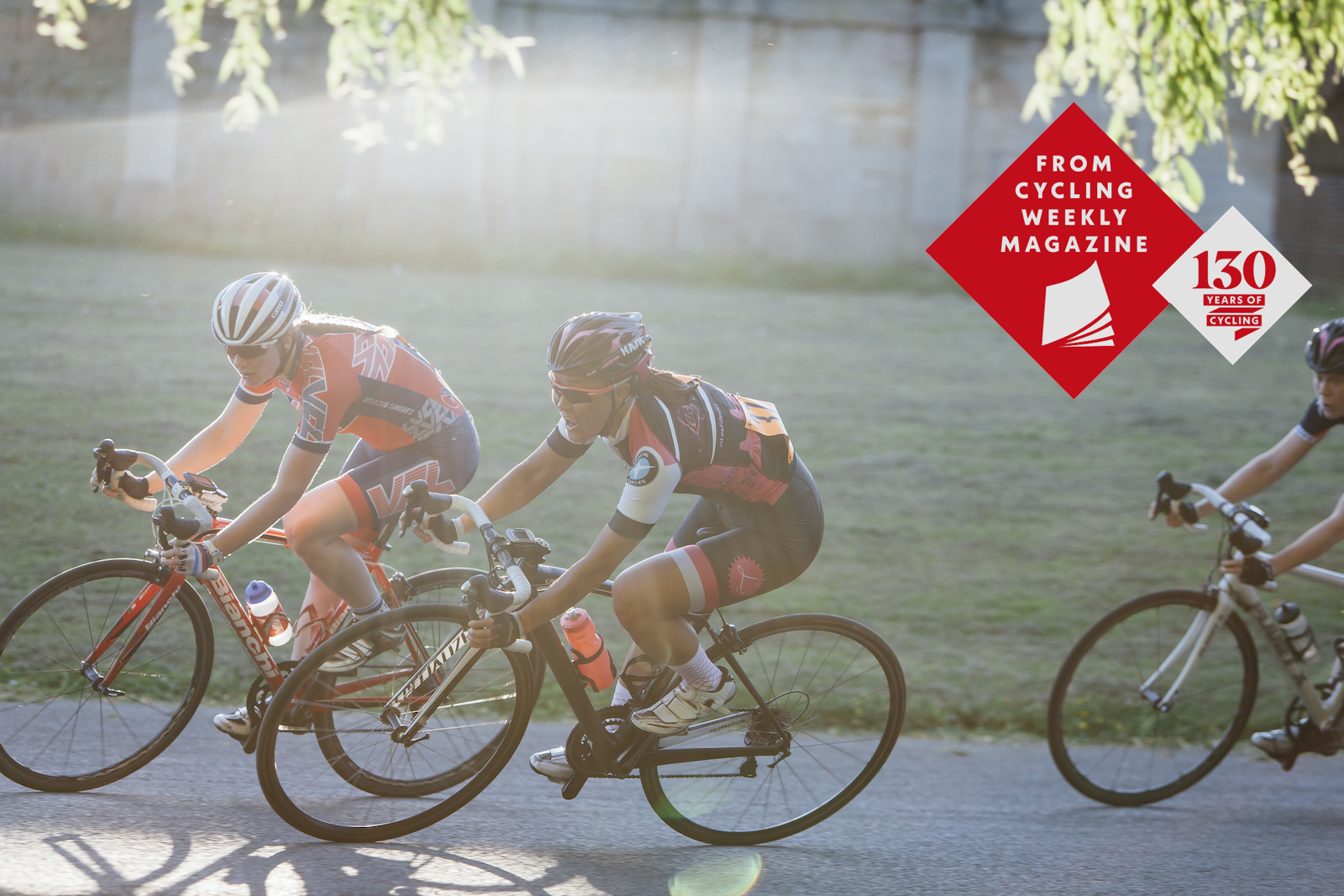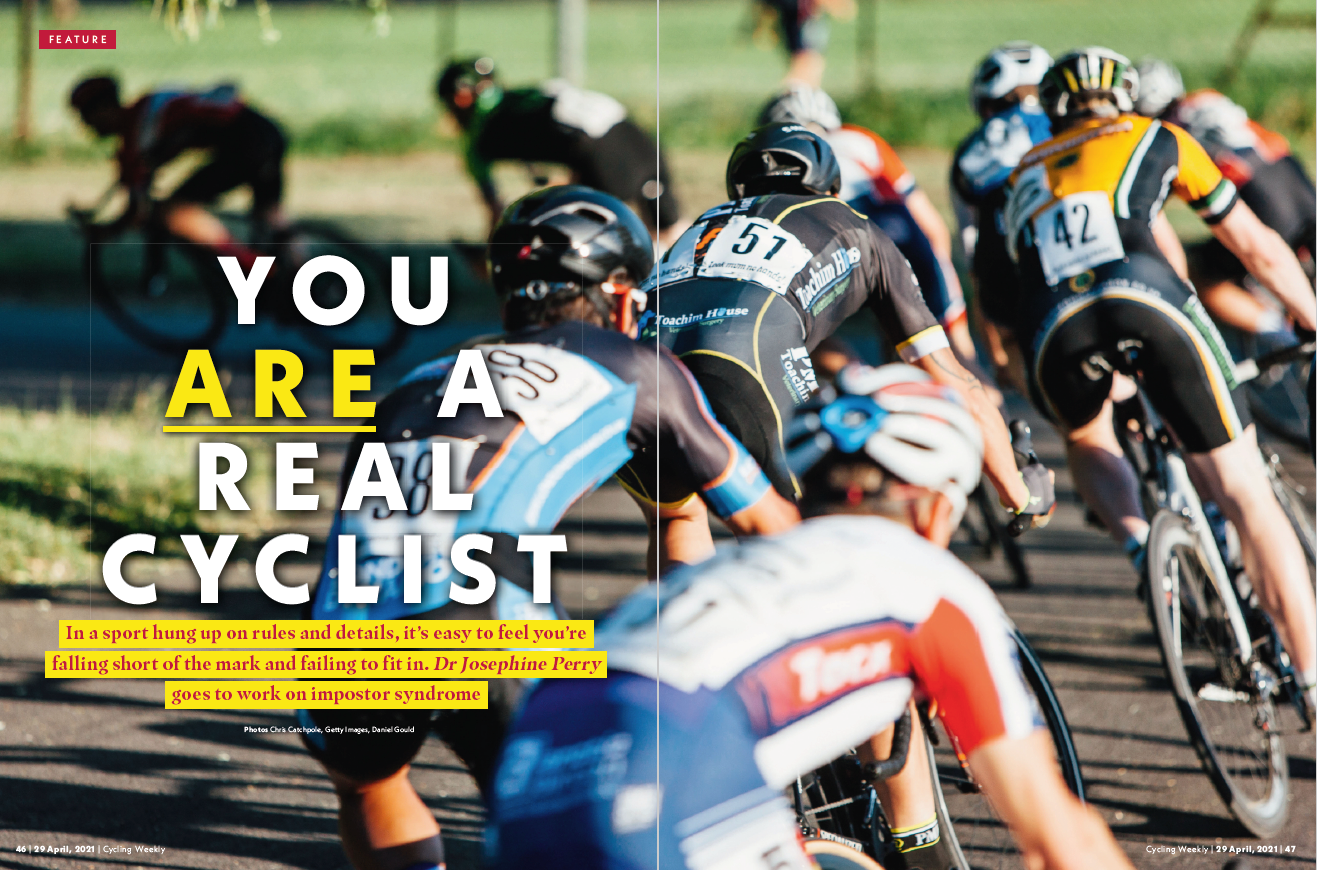You ARE a real cyclist - how to avoid imposter syndrome


In a sport hung up on rules and details, it’s easy to feel you’re falling short of the mark and failing to fit in. Dr Josephine Perry goes to work on imposter syndrome
We tend to think of cycling as brilliantly accessible. It takes us on adventures, provides the backbone of our social life and, if you commute by bike, saves thousands on motoring expenses. But cycling is not always as accessible as we like to think, and newcomers often feel shut out.
From the obscure ‘rules’ that we only know exist when we’re mocked for having broken them, to the ‘secret squirrel’ developments in technology, to the multitude of acronyms and arcane language combining French, Italian and English words referencing a history that it takes years to learn. Hardly surprisingly, then, that cycling can be rather intimidating – and none of us is immune from occasionally feeling like an outsider.
>>> Subscribe to Cycling Weekly magazine for more great features designed to help your riding
This has an impact, often a very painful one, which as a sports psychologist I encounter regularly in the people who call me for support. Typically they tell me they love cycling and believe they are competent riders, but then add the caveat: “But I’m not a real cyclist”. This inability to regard oneself as a ‘real cyclist’ – despite overwhelming evidence to the contrary – is the result of imposter syndrome.
By any objective measure, you’re a successful rider and part of the cycling community, but self-doubt persists and you constantly feel as though you’re about to be exposed as a fraud. If you feel this way, you are not alone – a meta-analysis involving 14,000 participants found as many as 82 per cent of cyclists have experienced these feelings.
“Imposter Syndrome can mean a rider underperforms and takes the safer option,” says Gary McKeegan, a physiologist and coach based in Northern Ireland. “They may avoid certain events or scenarios that they feel have the potential to expose them as imposters.” No one wins races sitting safely in the peloton – great riders need to be able to take risks.
Get The Leadout Newsletter
The latest race content, interviews, features, reviews and expert buying guides, direct to your inbox!

These riders also tend to attribute success to luck, and assume compliments they’re paid are mere politeness, while their achievements are chalked up as flukes. They feel constantly intimidated and insecure, in a permanent state of threat – and with such negative thoughts occupying their headspace, their riding is compromised and they’re liable to become mentally exhausted.
Where does this imposter syndrome come from and how can we get a better handle on it? In this feature, I will examine four key causes and identify some tried and tested ways to boost cycling confidence so you can fully own your place in the sport.
Read the full feature in the April 29 issue of Cycling Weekly magazine, on sale in shops now and available to buy online. If you want great fitness features each week to help you improve your riding, why not take out a subscription? You'll save on the cover price and have the magazine delivered direct to your door each week.

Thank you for reading 20 articles this month* Join now for unlimited access
Enjoy your first month for just £1 / $1 / €1
*Read 5 free articles per month without a subscription

Join now for unlimited access
Try first month for just £1 / $1 / €1
Dr Josephine Perry is a Chartered Sport and Exercise Psychologist whose purpose is to help people discover the metrics which matter most to them so they are able to accomplish more than they had previously believed possible. She integrates expertise in sport psychology and communications to support athletes, stage performers and business leaders to develop the approaches, mental skills and strategies which will help them achieve their ambitions. Josephine has written five books including Performing Under Pressure, The 10 Pillars of Success and I Can: The Teenage Athlete’s Guide to Mental Fitness. For Cycling Weekly she tends to write about the psychological side of training and racing and how to manage mental health issues which may prevent brilliant performance. At last count she owned eight bikes and so is a passionate advocate of the idea that the ideal number of bikes to own is N+1.
-
 FDJ-Suez, SD Worx-Protime, Lidl-Trek confirmed for Tour of Britain Women as strong list of teams announced
FDJ-Suez, SD Worx-Protime, Lidl-Trek confirmed for Tour of Britain Women as strong list of teams announced18 teams set to take part in four-day WorldTour stage race
By Tom Thewlis
-
 Cyclists could face life sentences for killing pedestrians if new law passed in England and Wales
Cyclists could face life sentences for killing pedestrians if new law passed in England and WalesReckless cycling currently carries a maximum two-year jail term
By Tom Thewlis